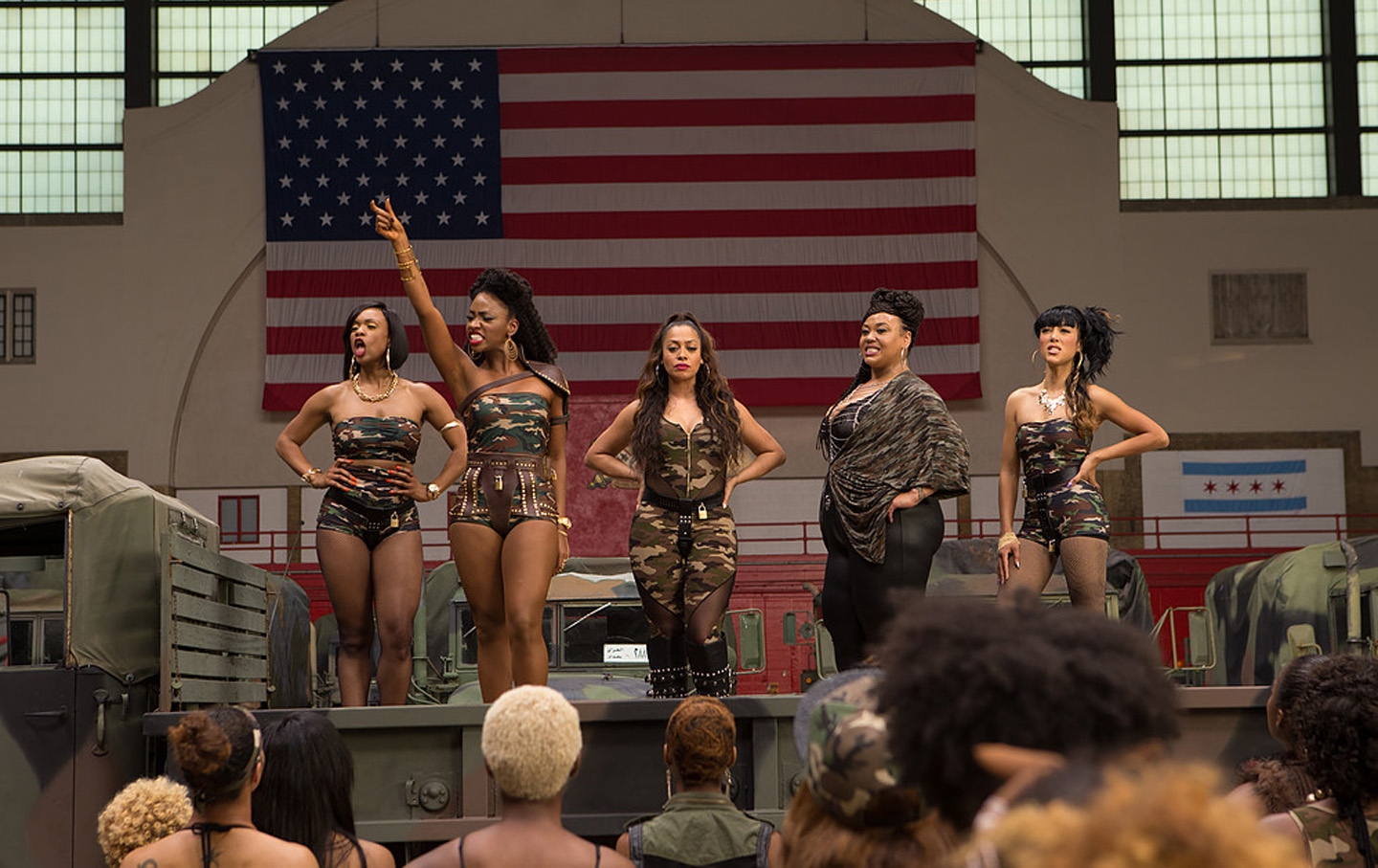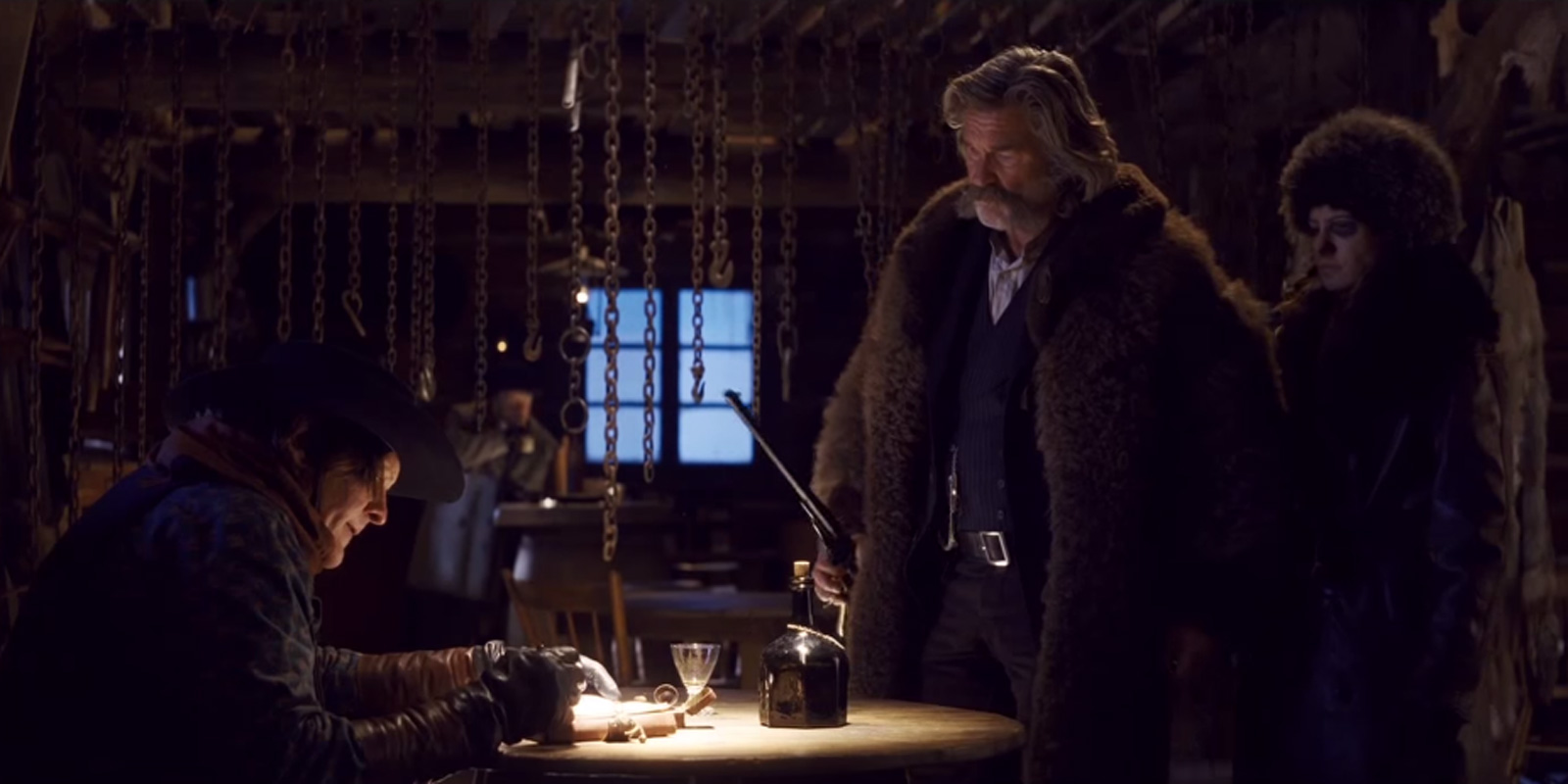Aaaaaand
we’re back! It’s once again time for
that great annual tradition of looking back and ranking the best of the best in
cinema for 2015. There were a lot of
good ones that came out, so let’s get right down to it!
As
in past years, my criteria for counting a film are as follows: any film that
received either a festival screening or a limited and/or general theatrical
release in either the USA (where I’m from) or Germany (where I currently live)
can be counted, even if it got an earlier release in another country. While this stretches the bounds a bit of what
makes something a “2015” film, it also lets me make a list that’s a touch more
unique.
Also
bear in mind (if you are a new reader), for my Top 10s I don’t try to rank what
I thought were the objectively best
films of the year (since that will never not be a nebulous concept), but rather
which films were my personal favorites.
There were a lot of excellent films I saw that are deservedly getting
Top 10 mentions and/or awards nominations elsewhere (like Bridge of Spies, Carol, 45 Years, and Straight Outta Compton, among many others) but that, for various reasons,
aren’t the sort of film I personally am inclined to sit down and watch again,
which is my main way of determining whether or not I really love a film. Some films just hit me harder on a personal
level than others do, even if I can admit that those movies that do aren’t
always the best. So if you have a
favorite you don’t see here, it in no way means I didn’t see it or didn’t like
it, and if that is the case I would love to hear about it in the comments!
We
will start things with a new category called Dishonorable Mentions. I do everything possible to avoid seeing bad
movies, so I never see enough disappointing or downright “bad” movies in a year
to justify a full Top 10 Worst list.
However, there were a few that got by my best sensors and disappointed enough
to merit one final smack before we wash our hands of 2015. These are not necessarily terrible movies,
but they were the main ones I saw that annoyed or frustrated me in some way, or
just plain failed to impress.
Dishonorable Mentions: Joy,
Jupiter Ascending, Queen of the Desert, Appleseed: Alpha, My Man
And
now, on to the honorables, the really fun and/or great movies that I just
couldn’t quite justify squeezing onto my Top 10 list (and it was a great year,
so there are a lot of them).
Honorable Mentions: Kingsman: The Secret Service, StarWars Episode VII: The Force Awakens, The Salt of the Earth (documentary), The Revenant, Amy (documentary),
Kumiko The Treasure Hunter, Spy, Mistress
America, Room, Crimson Peak, Predestination, The Martian
And
now, the main event!
10. Hello,Supernova (Yuichiro Konno)
I
have never seen a film like Hello Supernova
before, and I honestly doubt I will ever see one like it again. It’s a great example of how cinema, which we
usually see as simply being a vehicle for explaining a story, can also an act
of meditation. There are no story arcs
followed by the people we are introduced to in a small, strange city in
Japan. We are just offered moments and
experiences. And yet, we remember
them. They stick out in the mind. It’s nothing like anyone would expect, so I anticipate
some would be bored to tears by the seeming aimlessness of its wanderings, but
for me, I was moved by this one in a way I can’t begin to describe. There’s a beauty to that.
9. WhenMarnie Was There (Hiromasa Yonebayashi)
While
The Wind Rises sparked a fair
bit of controversy about its subject matter, and Princess Kaguya was rightfully praised up and down within the
ranks of film critics, I am sorry to see that When Marnie Was There has garnered a much quieter and more
downplayed reception since its release (it did manage to snag a nomination for
Best Animated Feature, but we all know it won’t win). Which I think is a right shame, because while
it might not necessarily be on the same level as the best that Studio Ghibli
has produced, it has a lot of deep subject material tucked in around the edges. On the surface it’s a typical coming-of-age
tale, but there is some heavy emotional stuff that gets unpacked in its best
moments. It also functioned better at
being a strange mystery yarn/ghost story than any other film I saw this
year. While the conclusion might not
live up to the build-up for some, I was entranced while I watched it, and I won’t
forget the experience anytime soon.
8. A
Girl Walks Home Alone At Night (Ana Lily Amirpour)
This
should be the flick that brings back proper vampire stories. Filmed entirely in black-and-white, with some
of the best and smoothest cinematography in a year full of great camerawork, it
slowly envelopes us in a seedy underworld of sex and drugs in a small, nowhere
city, where a lone female vampire preys on criminals and abusers of women. Taking its time to build up the tension bit
by bit (the “full reveal” of the vampire is a good half-hour or so into the
film), the movie only goes for a few big moments of fright, but when they hit,
they hit hard, and are well-earned. And
yet, it also finds room to be strangely sweet in a few key scenes. Take an evening to watch this one, and turn
out the lights when you do.
7. Pale Moon (Daihachi Yoshida)
Combining
slick camerawork, one of the coolest-sounding scores of the year, and one of
the best performances by a female lead, Pale
Moon is a tale equal parts tragedy and comedy, as the main character
bounces from one extreme to another in an effort to break out of the
professional, cultural, and even ethical strictures placed on her by society by
laundering her clients’ money for personal gain. Is she a good person? An awful person? Neither, because existence is inherently meaningless
and morality is dead? The film is
remarkably balanced, offering no judgment on her actions, letting us try to
decide what we would have done in her stead.
This was one of the last films I saw at Nippon way back in June, and it’s
stuck with me all the way through the year.
Absolutely worth a look.
6. Ex
Machina (Alex Garland)
Ex Machina was easily the most creative,
thrilling, and deeply thoughtful sci-fi film that I saw this year, as well as one
of the most philosophical. If AI is
indeed possible, is it inevitable that we will project onto (or into?) it our
own sexual, gender, and racial biases and archetypes? Few films I’ve seen carry such challenging
ideas about the nature of gender and how it is viewed and perpetuated in our
world, and how that could easily affect the future to come (if you want a great
think piece on the film, I highly recommend this gem from Feministing). With all due respect to a certain
other movie both Oscar Isaac and Domhnall Gleeson appeared in last month,
here the two of them plus an astounding Alicia Vikander (whom the Academy
nominated for the WRONG film) form the most compelling and fascinating trio of
main characters in any feature I saw in 2015.
5. The
Big Short (Adam McKay)
The Big Short is, in many ways, a spiritual
successor to Wolf of Wall Street, carried along by the same frenetic energy and hectic pacing, but
stripping out the drug- and sex-orgies so that its righteous anger can be more
viscerally focused on the amoral f***ery that allowed the creation of the US
housing bubble that, eventually, caused the global recession of 2007. Anyone watching this with their eyes and ears
open will come away angry at themselves for still not really understanding why
the whole crisis happened, and how it is that those primarily responsible for a
huge amount suffering in so many countries were allowed to walk away
scot-free. Like Wolf, it is a blast of an experience, but if your moral compass
still works in any way by the time it’s done, your laughs will become hollow,
and you will wonder if it’s ever possible that people will wake up enough to
keep something like this from happening again.
4. Chi-Raq (Spike Lee)
Taking
a lewd Greek comedy about sexism and gender roles that most people have never
heard of (and fewer have actually read and understand) and using it as a
springboard to rant about gang violence, inner-city degradation, broad societal
racism, and the general failure of a country that claims to be based on ideals
of freedom and equality to live up to those ideals in any meaningful way is the
kind of bizarro, deliberately-provocative combination that could easily result
in an utter disaster of a film. But Spike
Lee pulls it off. He drives up to the edge
of the precipice and wheels right over it with a brash and bawdy bravado that
is remarkable to see play out. It might
not be as focused in its rage as The Big
Short, but that in no way diminishes how powerful its best moments
are. Its resounding call at the end for
everyone in this country to WAKE UP is one of the best endings to a film I saw
all year. While I can understand many of
the criticisms of how Spike Lee approached the subject matter and whether or
not choosing real-world Chicago as its setting was the most appropriate choice,
I still argue that this is one of the genuine must-see films of the year, and I
urge people to reserve judgment on it until they’ve seen it and thought about
what it’s really saying.
3. Inside Out (Pete Docter, Ronnie del Carmen)
A
blessed reminder that, despite the slew of less-than-stellar sequels coming out
of the once unassailable giant, Pixar is in no way going to fall off the charts
anytime soon. Not only is this their
best work since Up, it’s easily one
of their best films ever. It’s also (and
please pardon the pun) one of their brainiest, creating a story that’s colorful
and funny enough for kids to enjoy, but is also able to use remarkable subtlety
and depth to convey complex ideas about psychology and personal growth, about
how internal instincts and external events both effect and are affected by each
other in complicated ways, and about the need to experience the full range of
human emotions in order to truly mature as a person. It was one of the funniest movies of the
year, one of the most moving, and one of the most inspiring.
2. Brooklyn
(John Crowley)
All
due respect to Inside Out, which in
true Pixar fashion tugs at the heartstrings relentlessly, but no other movie
got me as emotional or made me cry as hard as Brooklyn did. And I will
fully admit (remember, I have no pretensions of being objective with this list)
that this has a lot to do with the fact that I have recently been going through
something very similar to what Eilis endures as she struggles to reconcile dual
parts of her identity, having left her homeland behind to start a new life
elsewhere, yet still feeling the tug of the other world and life that could be
hers if she wanted.
I
think there are two main aspects to this film and story that make it so
affecting. One is how matter-of-factly
it presents the people, beliefs, and norms of the time period its set in, never
making Eilis out to be a perfect model of a heroine, nor making any of her
stumbles in life out to be the work of a nefarious villain. She is a person, flawed and whole, same as
the people she bumps into (and falls in love with) over the course of the film. The second is its understanding of how frankly
uncompromising some decisions in life must be- while everyone starts out with
universes of possibility open to them, there are times when one path must be
chosen over another, and it’s up to us to decide why we choose what we do, and
to stick to it if we want to make something of ourselves. The film’s understated embrace of this
fundamental principle of life itself makes the ending vibrate with an emotional
power and resonance that broke me. Only
the rarest of films achieve that.
1. Mad
Max: Fury Road (George Miller)
You’re
shocked, I know. What can I say? Put simply, Fury Road was hands-down my favorite movie of the year. It crushed all competition in the category of
best action movie of the year, with expertly-crafted set pieces that were stunningly
beautiful to watch (and a big “f*** you” to all the Michael Bays of the world),
yet still bone-crunchingly intense to experience. It was one of 2015’s most daring films, with
all the balls-to-the-wall nuttiness of its world on full display, no shame need
apply. Finally (and this counts for a
lot in my book), the clever and detail-packed writing made for one of the most
quotable scripts of the year.
All
of that taken on its own would have merited this film a spot on my Top 10
list. However, it gets my number one
spot because it doesn’t stand pat, content with simply being a two-hour, adrenaline-fueled
joyride. It goes the extra mile. It might not have been the most “serious”
film of the year, or directly tackled real-world issues (ala Chi-Raq, The Big Short, Spotlight,
etc.), but beneath its crazy exterior lies a wealth of visual and thematic
commentary on patriarchy and gender roles that made it, in my book at least,
the best movie of the year to combine being both serious thought-piece
inspiration AND a true cinematic experience. It is the best kind of glorious spectacle to bear witness to.
And
there you have it! Another year gone,
another Top 10 list. Up soon will be my
personal awards for 2015, as well as a brief run-down of my favorite
soundtracks from the year, as well as my picks for the upcoming Oscars. And after that, another year of film will
open up to us. I can’t wait to see what
we get this time around.
-Noah Franc



